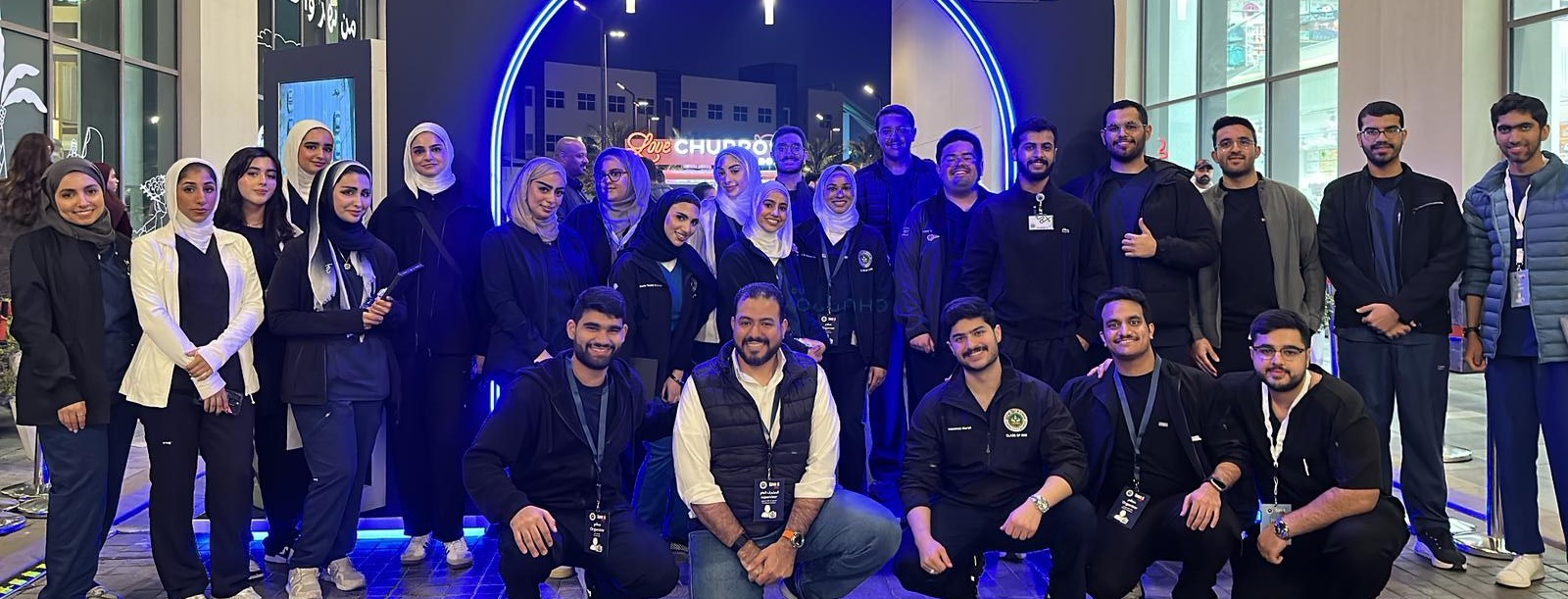
Conclusion of “Save a Life” Campaign for Teaching First Aid Applications Amid Remarkable Engagement
Arabian Gulf University
26 Jan, 2025
The “Save a Life” campaign, organised by students from the College of Medicine and Health Sciences at the Arabian Gulf University (AGU), has concluded successfully. This initiative, which aimed to raise awareness about first aid applications, ran for two consecutive days under the supervision of Dr Abdulla Ismaeel Mohamed, Assistant Professor in the Department of Surgery and Head of the Alumni Unit.
In this context, Dr Abdulla asserted that this initiative presented the university as an inspiring model in the field of health education and community work. The students demonstrated their active role in enhancing individual safety and readiness to handle emergencies with competence and confidence.
The campaign, overseen by the Deanship of Student Affairs at the university, aimed to increase community awareness about the importance of first aid and educate people on the correct responses to medical emergencies to ensure personal safety and protection. “Save a Life” served as an educational activity focused on empowering individuals to handle emergencies confidently and effectively while promoting a culture of prevention.
The campaign also engaged medical students and community members in an educational and interactive experience, imparting essential knowledge and teaching participants the skills needed to manage critical situations such as injuries or medical emergencies.
Through this campaign, medical students emphasised the importance of community awareness in enhancing public safety by providing basic information and skills that prepare individuals to face any emergency situation. They demonstrated interactively the value of volunteer work in achieving community goals by contributing to the dissemination of knowledge and serving the society.
The campaign featured a series of educational stations that explained how to deal with various emergency situations that might occur in daily life. These stations covered vital topics such as cardiopulmonary resuscitation (CPR), handling choking incidents, treating burns, stopping bleeding, managing seizures and fainting, and dealing with anaphylactic shock.
The event was distinguished by practical simulations of emergency procedures, with participants praising the interactive approach that helped them understand the correct response required in different scenarios. These simulations contributed to making the learning experience more realistic and impactful.
